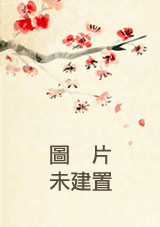| 英文摘要: | This study examines the translation activities driven by laws or administrative measures in Japan, Korea, and Vietnam over the last 30 years, and has compiled the following information on each country: (1) Administrative or legislative regulations related to translation, and the agency with jurisdiction. (2) The characteristics and scales of university departments, training courses, and postgraduate degrees in translation. (3) The histories, characteristics, and influences of large-scale translation projects. (4) The histories, characteristics, and influences of translation prizes. (5) Whether these countries publish or subsidize multilingual publications over the long term. (6) The histories and scales of translation associations, and other related organizations. The results of the research show that Japan is quite active in translation activities, including publishing, teaching, testing, awards, translator associations, the Japan Translation Federation, Japanese Centre PEN International, the Japan Association of Translators, etc. However, most of these activities take place in private enterprises and professional organizations. In terms of translation education, the first translation MA course was established in 1995 by the Faculty of Economics at DaitoBunkaUniversity. Most translation courses are found in private or smaller universities, and most of them are merely academic courses or training courses instead of independent departments and graduate institutes that focus on both theory and practice. This shows that Japan's translation activities are driven by the needs of the national economy and cultural lifestyles instead of being driven by government policies or other forms of governmental influence. Since Korea published "Publication and Cultural Industry Promotion Law" in 2003, it has been the sole legal basis of Korean translation industry. According to the legislation, the Korea Literature Translation Institute (KLTI) was established under the Ministry of Culture, Sports and Tourism (MCST). KLTI carries out the task of translating and publishing literary works and publications, as well as training translators. Every five years, the department formulates "Publication and Culture Promotion Five Years Plan" and sets a budget to promote the east and west classical literature translation and publication promotion plan, to support publications outside translation of domestic release of Korean studies, to support translation of overseas release books and to implement translator training. Obviously, the Korean government plays a key role in planning and promoting the translation policies strategically. Abiding to international standards of foreign languages, Vietnam is actively developing translation efforts in multiple dimensions, including translation effort forms, translation organizationand translator training. Meanwhile, Vietnam has started to set a budget to promote translation awards, including books, classical and modern literatures, movies, E-books and others. All of these efforts show the determination and foresight of the government to promote their translation in the long term. In addition, a total of 15 universities in Vietnam established translation departments.Vietnam National University, Hanoi (VNU) and Hanoi Foreign Language Vietnam National University are the cradle of translators among them. Besides popular departments of translation including English, French, Russian, German, Japanese and Korean, there are Arabic and Southeast Asia language. In the graduate school, there is curricula to translate five languages among each other. Japan’s universities set up various ancient and modern language curricula since the old days. Vietnam and Korea’s university departments carry out the task of training multi-language translators. We should learn from these countries’ pattern and vision in order to improve our translation system and structure. |
